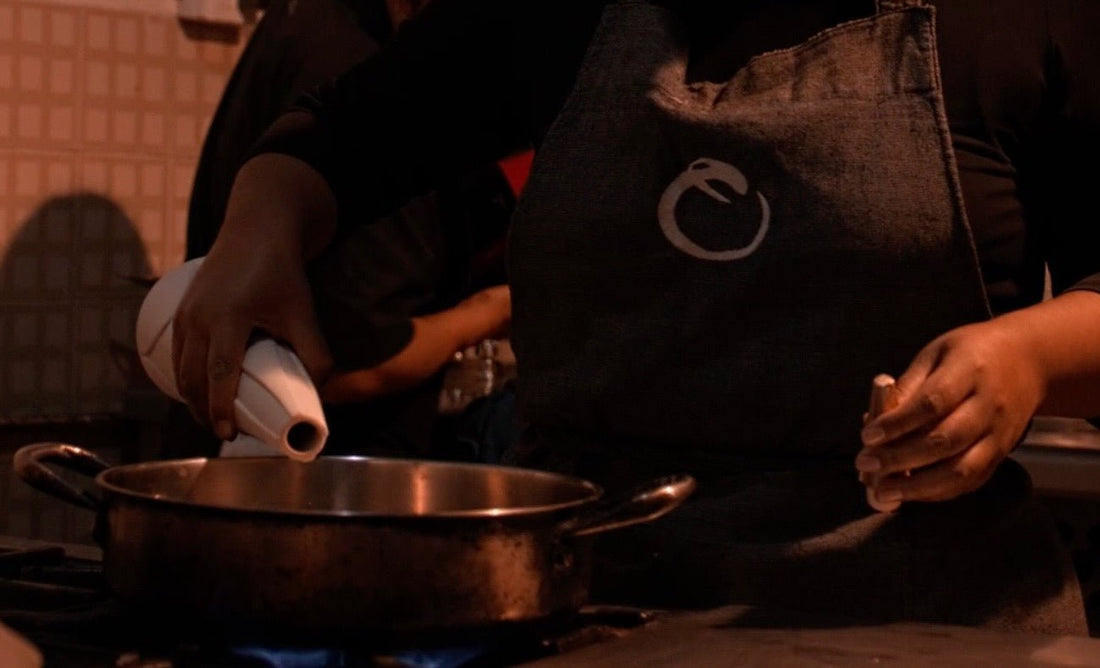
The Rise of Additive Free Drinks- "No additives or preservatives"
In a world where health and authenticity increasingly dictate consumer choices, the beverage industry is experiencing a significant shift towards additive-free drinks. This trend is especially pronounced in the realm of spirits, where discerning drinkers are turning their attention to products that promise a pure experience. Among these, artesanal ultra premium mezcal stands out, particularly in contrast to many other spirits that commonly include additives such as premium tequilas.
Understanding Additives in Beverages
Additives in alcoholic beverages can range from benign colouring agents to flavour enhancers and preservatives. Commonly used additives include:
- Caramel colouring: Often used to standardize the appearance of spirits.
- Sugar or sweeteners: Added to soften harsh flavors and make the drink more palatable.
- Glycerin: Used to improve mouthfeel and body.
- Artificial flavours: Employed to enhance or modify the natural flavours of the drink, especially in lower-quality products.
These additives are employed for various reasons, such as enhancing flavour, adjusting the visual appeal, and prolonging shelf life. While they can make a beverage more attractive to the casual consumer, they often mask the true character of the spirit.
The Challenge of Producing Additive-Free Spirits
Producing an additive-free drink, particularly in the realm of ultra-premium spirits like mezcal, presents significant challenges. The production process demands a high level of purity and adherence to traditional methods, which is both labour-intensive and time-consuming. For Bandida, this means relying on the natural flavours and characteristics derived from the agave plant and the terroir, mentioned in previous blog posts.
Using a deeply organic and hands-on approach, using traditional tools such as tahonas (stone wheels) to crush the agave, and hornos (earthen pits) lined with volcanic rocks for slow roasting the agave hearts also helps maintain Bandida’s taste profile without adding additives or preservatives.
Bandida mezcal production involves harvesting agave plants at the peak of their maturity—often using the "Capón" method where the flowering stalk is removed to concentrate the plant’s sugars and flavours into the piña (the heart of the agave). This piña is then cooked, usually in pit ovens lined with lava rocks, ground, fermented, and distilled. Each step influences the final flavour, and any shortcuts or additives would diminish the authentic taste and quality that we cherish.
The Reality of Premium Tequilas and Other Spirits
Interestingly, even many premium tequilas and other high-end spirits include additives. Despite their high price and market positioning, the drive to maintain consistency, enhance flavours, and create a product with mass appeal leads many producers to rely on additives. This is in stark contrast to ultra-premium mezcal, which prides itself on its pure, additive-free nature.
One way to test if your drink contains additives is to pour a tiny amount of Bandida, or any tequila, onto your hands and rub your hands together. Wait for 20 seconds then gently close and open your hands to see if your hands stick together, you may be surprised to see which drinks actually contain additives and sweeteners.
Another option is to boil Bandida, or another premium tequila in a pan, and once all of the Mezcal / tequila has evaporated you will see if there are any sweeteners left in the pan, as you can see from the picture above- a video we took in Oaxaca, doing just this.
Why Additive-Free Mezcal Stands Out
The lack of additives ensures that each sip delivers a true reflection of the spirit’s origin, production process, and the natural environment of the agave.
The movement towards additive-free drinks is not just about following a trend. It's about a growing awareness and appreciation for traditional methods, natural ingredients, and the skill of artisans who create complex spirits without the crutch of artificial enhancements. As more consumers seek out authentic, clean-label products, ultra-premium mezcal is poised to become not just an option, but a preference.
The rise of additive-free beverages is a testament to the evolving palates and priorities of modern consumers, who increasingly value purity and transparency in their choices. As this trend continues to grow, it reaffirms the importance of preserving traditional production methods and celebrating the natural qualities of ingredients like the agave used in mezcal, offering a richer, more genuine drinking experience.



